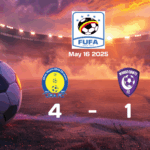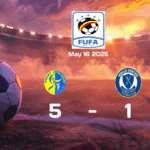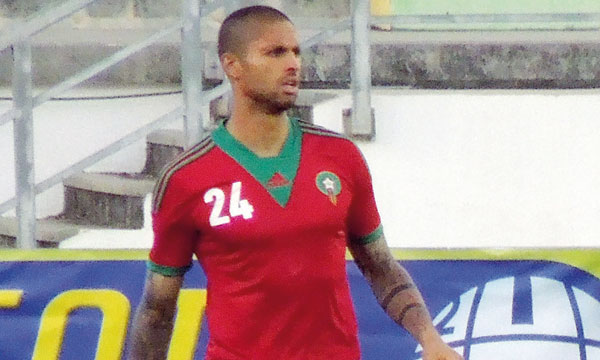Adem Zorgane, captain of Sporting Charleroi and Algerian international, has once again declined to wear the rainbow armband during the final matchday of the Belgian Pro League season, reigniting discussion around personal freedom and the role of symbolic gestures in football.
The last round of fixtures in the Belgian top flight marked the annual “Football for All” campaign, an initiative organised by the Pro League to show support for the LGBTQ+ community.
While many players across the league wore the multicoloured armband in solidarity, Zorgane opted not to participate in the gesture—a decision he has taken previously as well.
Citing personal convictions rooted in his religious beliefs, the 24-year-old midfielder’s stance has stirred renewed attention in Belgian media.
However, Charleroi’s management was quick to reaffirm its respect for the player’s decision, insisting it remains a matter of individual conscience rather than club policy.
“This is not a club decision. It is a personal choice of our captain, and we fully respect him,” said Charleroi general manager Pierre-Yves Hendrickx, emphasising that the club maintains a policy of tolerance and respects diversity of thought and belief among its players.
Zorgane’s choice did not go unnoticed among his peers. According to local reports, several other captains in the Belgian league also declined to wear the armband. Among them was Dogucan Haspolat of KVC Westerlo, who initially intended to take part but reversed his decision after learning of Zorgane’s stance. In total, six team captains chose not to participate in the campaign by wearing the armband.
Importantly, the Belgian Pro League has adopted a policy of non-coercion on such matters. Unlike some European leagues where players may face disciplinary action for similar refusals, the Belgian football authorities have opted for a more open, dialogue-based approach.
“The regulations would allow it, but we want openness. You don’t get that with punishments,” explained Lorin Parys, CEO of the Pro League, in response to the growing debate.
Despite the controversy, Zorgane remains a vital figure for Charleroi. In the current season, he has featured in 39 matches across all competitions, contributing one goal and five assists.
His leadership on the pitch was instrumental in guiding Charleroi to a position that earned them qualification for the UEFA Europa Conference League play-offs.
Since joining the Belgian club in 2021, Zorgane has become one of its most consistent performers, amassing 138 appearances and earning praise for his technical skill and composure in midfield.
His influence extends beyond his playing abilities, as evidenced by his role as team captain and the respect he commands both within the dressing room and among the club’s hierarchy.
While his latest decision may divide opinion among fans and commentators, it also underscores an ongoing conversation in sport: the balance between collective expression and individual belief.
For now, the Pro League’s inclusive approach appears to have set a tone of mutual respect—one that allows room for solidarity, as well as dissent.
Zorgane’s personal conviction, publicly stated and calmly received, highlights the nuanced terrain professional athletes navigate today, where their choices resonate far beyond the pitch.











